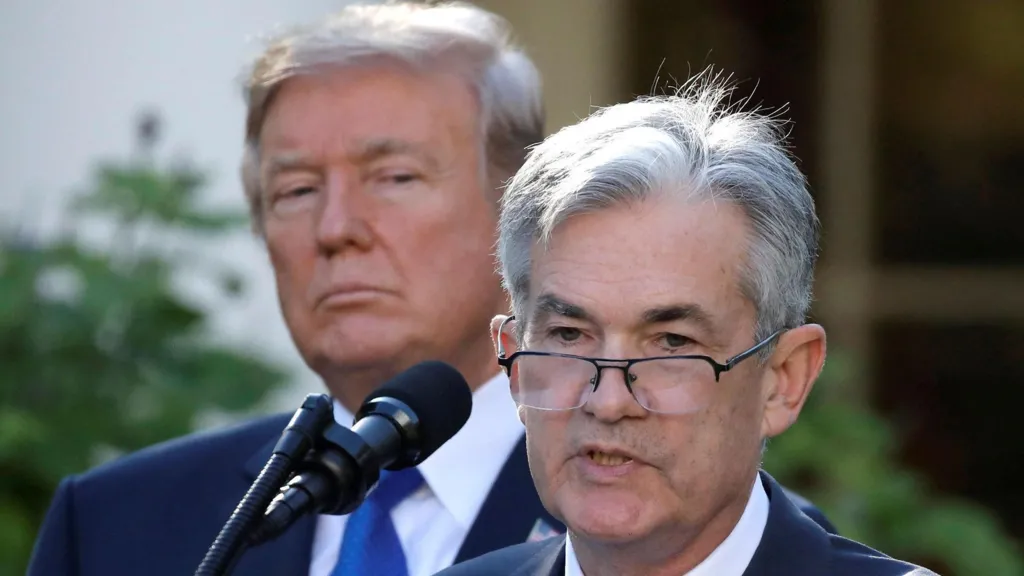
 Reuters
ReutersUS President Donald Trump says he has "no intention of firing" Jerome Powell after repeatedly criticising the head of the Federal Reserve.
But he added that he would like Powell to be "a little more active" when it comes to cutting interest rates.
Speaking in the Oval Office on Tuesday, Trump also said he is optimistic about improving trade relations with China.
Last week, the president intensified his criticism of the Fed chief, calling him "a major loser". The comments sparked a selloff of stocks, bonds and the US dollar, but financial markets have since been recovering from those losses.
The latest remarks came after the director of the National Economic Council Director Kevin Hassett said on Friday that Trump was looking into whether it would be possible to sack Powell.
During his first term in the White House, Trump nominated Powell to lead the central bank in 2017. Then-President Joe Biden nominated him for a second four-year term at the end of 2021.
The Fed has not cut rates so far this year, after lowering them by a percentage point late last year, a stance Trump has heavily criticised.
It is unclear whether Trump has the authority to fire the Fed chair. No other US president has tried to do so.
Also on Tuesday, Trump said he would be "very nice" in negotiations with Beijing and tariffs would fall if there was a deal, but not to "zero".
Earlier, US Treasury Secretary Scott Bessent reportedly said he expected a de-escalation of the trade war with China, describing the current situation as unsustainable.
After the remarks, most major Asian stock markets were higher on Wednesday as investors appeared to welcome the latest remarks.
Japan's Nikkei 225 index rose about 1.9%, the Hang Seng in Hong Kong climbed by around 2.2%, while mainland China's Shanghai Composite was down less than 0.1%.
That came after US shares made gains on Tuesday, with the S&P 500 ending Tuesday's session up 2.5% and the Nasdaq rose 2.7%.
US futures were also trading higher overnight. Futures markets give an indication of how financial markets will perform when they open for trading.
Investors feared that pressure on Powell to lower interest rates could cause prices to rise at a time when trade tariffs are already seen boosting inflation.
Trade tensions between the world's biggest economies, as well as US tariffs on other countries around the world, have triggered uncertainty about the global economy. Those concerns triggered turmoil in financial markets in recent weeks.
On Tuesday, the forecast for US economic growth for this year was given the biggest downgrade among advanced economies by the International Monetary Fund (IMF) due to uncertainty caused by tariffs.
The sharp increase in tariffs and uncertainty will lead to a "significant slowdown" in global growth, the Fund predicted.
Trump has imposed taxes of up to 145% on imports from China. Other countries are now facing a blanket US tariff of 10% until July.
His administration said last week that when the new tariffs are added on to existing ones, the levies on some Chinese goods could reach 245%.
China has hit back with a 125% tax on products from the US and vowed to "fight to the end".
The Chinese government has not yet officially responded to the latest statements from the Trump administration.
However, an article in the state-controlled Global Times on Wednesday quoted commentators who said the remarks showed that the US is beginning to realise the tariffs do more harm than good to America's economy.